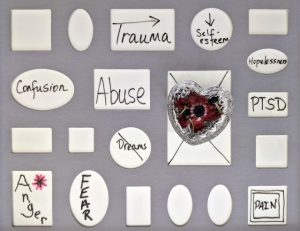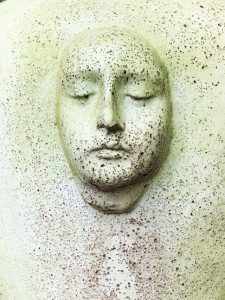Trauma and AUD—What’s the Connection?
Going through trauma—an extreme experience for most of us—can cause an equally extreme psychological reaction. Most people want to escape thinking about whatever caused the trauma in the first place. And dealing with emotional wounds can also nudge people toward alcohol use disorder (AUD). While some might be encouraged to “just get over it,” the reality is that recovering from trauma can be complicated by increased alcohol use.
In this article, we’ll explore some of the roots of trauma and AUD.

Photo by Susan Wilkinson for unsplash
What Is PTSD?
In 1980, the term PTSD (post traumatic stress disorder) first appeared in the Diagnostic and Statistical Manual of Mental Disorders (DSM-lll), the standard manual published by the American Psychiatric Association.
Previously, terms such as “shell shock” or “soldier’s heart” were used to describe the aftereffects of war—until people began paying closer attention to the psychological effects of combat. The Vietnam War sparked a closer look at these symptoms, which can include “passive-dependent states, psychosomatic states, guilt and depression, aggressive and hostile reactions, and psychotic-like states.”
But PTSD can occur as a result of other types of trauma: sexual assault, domestic violence, online harassment, or surviving a natural disaster like a fire or a flood. Some people suffer from adverse childhood experiences (ACE), meaning trauma that occurs early in life due to neglect or abuse.
More recently, it’s not overstatement to call the COVID-19 pandemic traumatic, given its dramatic effect on millions of lives. Any of these events can cause the victim to turn to alcohol (and by “turn to,” we mean drinking unhealthy amounts). But what causes this cycle?

Photo by Jan Canty for unsplash
How Does Trauma Affect Alcohol Use?
Extreme trauma can cause individuals to self-medicate, to avoid reliving the experience that caused the trauma. Many people suffering from PTSD realize that alcohol does numb emotional pain—albeit temporarily. But in the long run, alcohol makes PTSD worse.
Whether with alcohol or other substances, the situation is common. According to the U.S. Department of Veterans Affairs, “Between six and eight of every ten (or 60% to 80% of) Vietnam veterans seeking PTSD treatment have alcohol use problems.” They add, “War veterans with PTSD and alcohol problems tend to be binge drinkers.”
Of course, veterans aren’t the only ones susceptible to trauma and AUD. Stress can overwhelm anyone who has endured a life-threatening event—such as a car crash—and emerged intact. It’s also important to note that men and women experience PTSD differently. And though either of these disorders comes with serious health challenges, when they occur simultaneously the effects can be compounded.
Concerned you may be drinking too much? Take our Alcohol Use Survey.
Dealing with PTSD and AUD
People suffering from both PTSD and AUD sometimes need special attention. Since the two disorders are often closely intertwined, psychological counseling is a must, to decipher and disentangle the two. Cognitive behavior therapy (CBT) can help get to the root of the problem.

Photo by Arif Riyanto for unsplash
Medications can help reduce alcohol cravings so that more attention can be focused on trauma origins. Researchers at NYU are finding success with topiramate and cannabidiol. (Note: Though we do not endorse cannabidiol at this time, we do use topiramate, an FDA-approved medication.)
If you know someone showing symptoms of PTSD, and who is drinking heavily as a result, there are now modern, evidence-based methods that can help—like Ria Health. We take great pride in our team of coaches and counselors, who deal with trauma and AUD, among many other sensitive issues.
With growing awareness of the importance of mental health in general, more people are aware of the effects of PTSD. And this body of knowledge is reducing the stigma of seeking help in the first place.
Read More: PTSD and Alcohol Use
Will insurance cover treatment? Verify Coverage
Have Questions? Call (800) 504-5360



